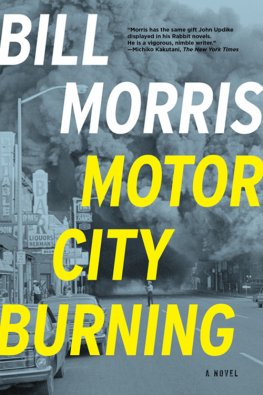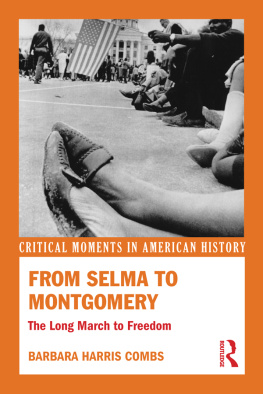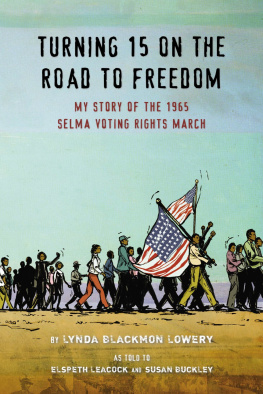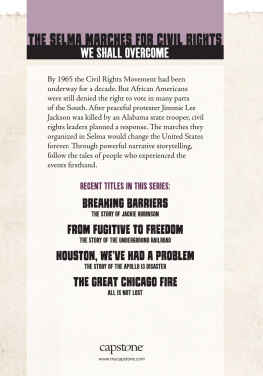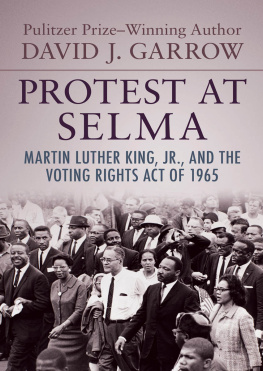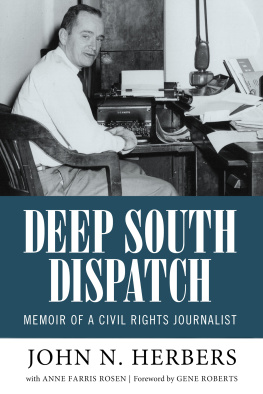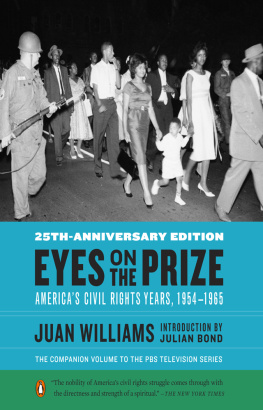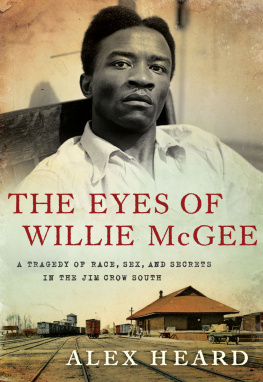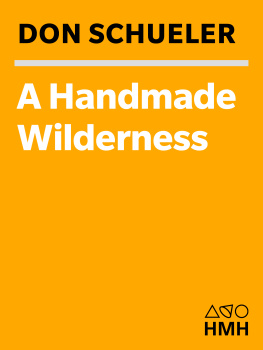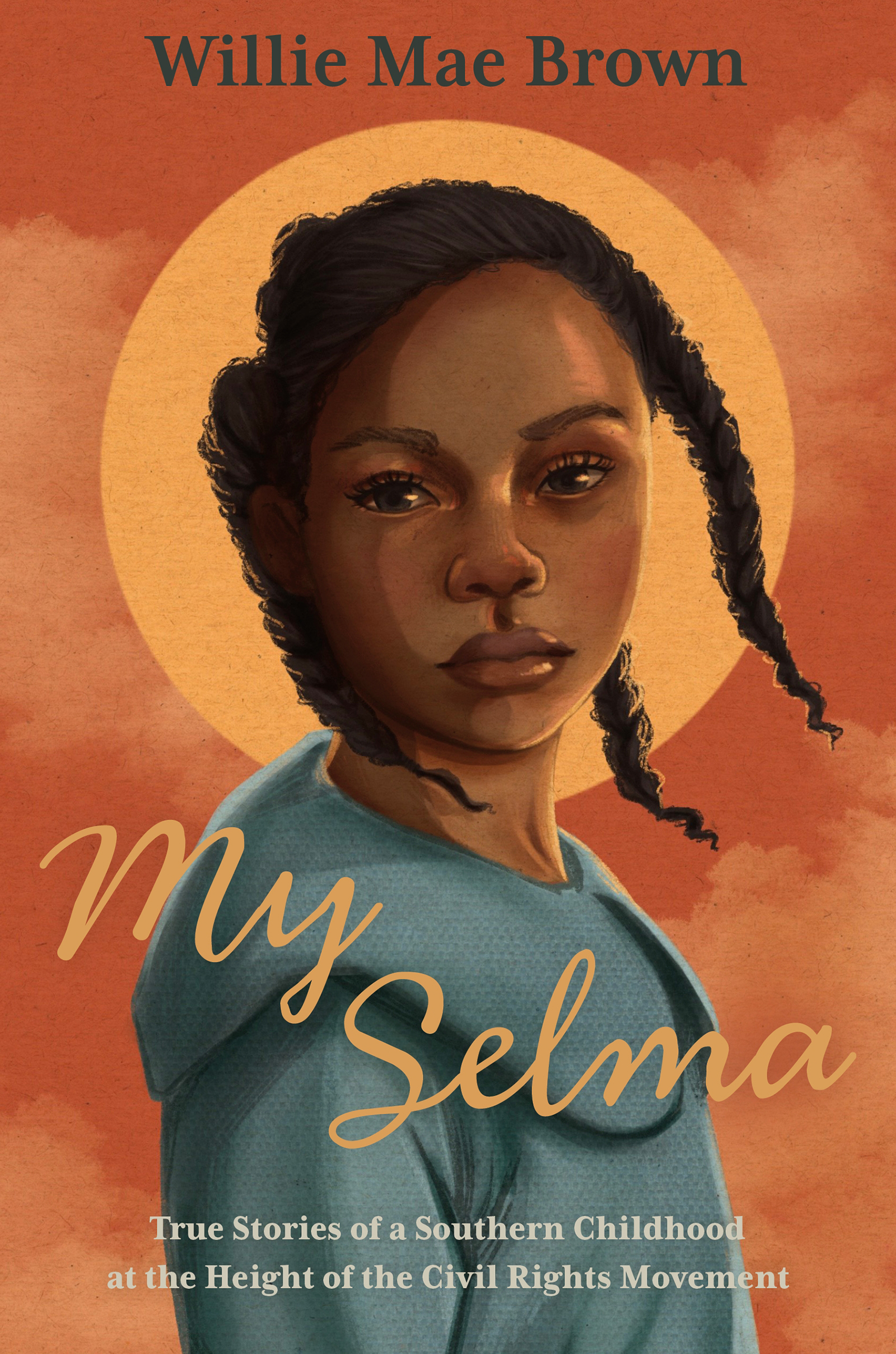Contents
Guide
Pagebreaks of the print version
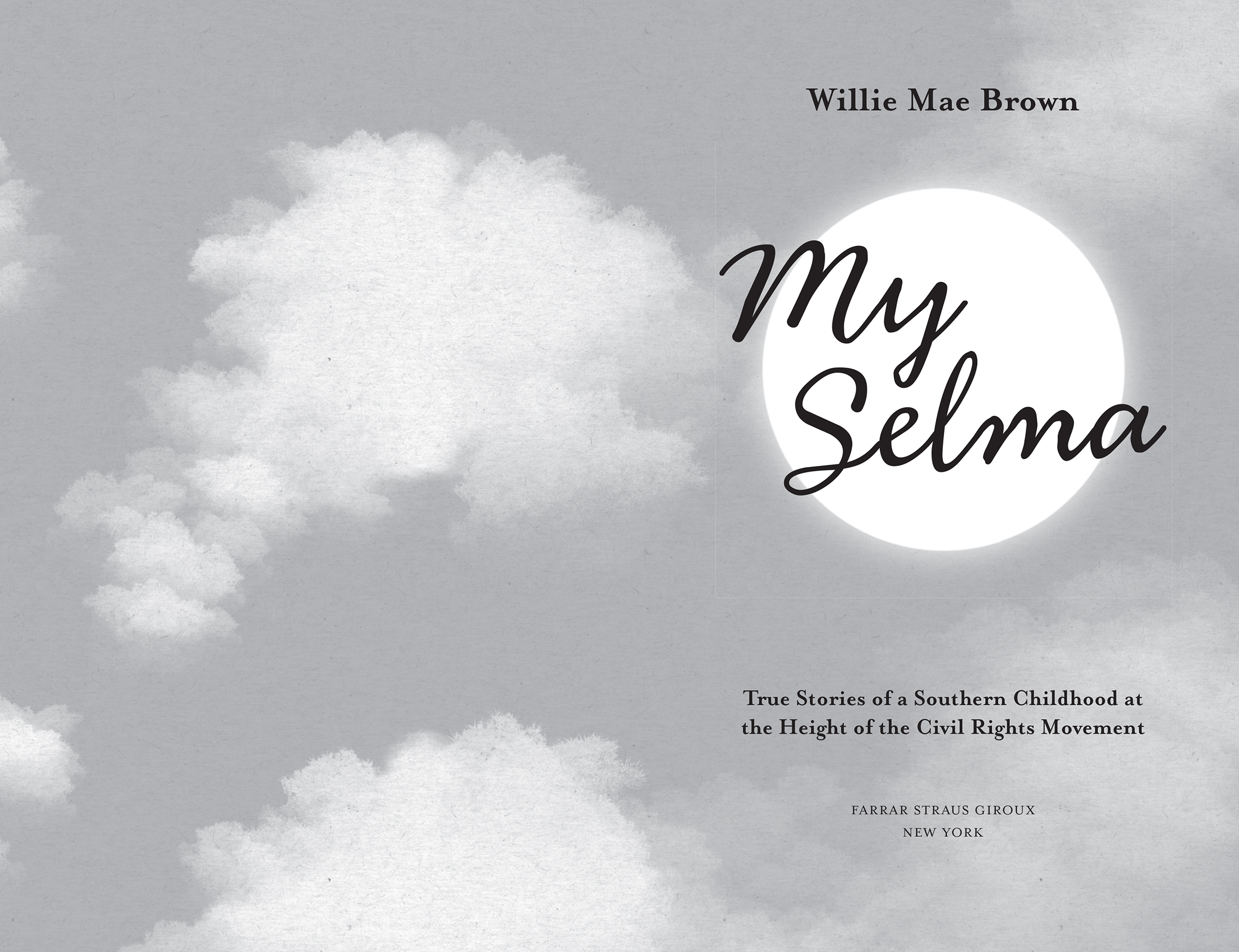
The author and publisher have provided this e-book to you for your personal use only. You may not make this e-book publicly available in any way. Copyright infringement is against the law. If you believe the copy of this e-book you are reading infringes on the authors copyright, please notify the publisher at: us.macmillanusa.com/piracy.
To my mentors, Daisaku and Mrs. Ikeda
To my sons, Boston Snowden and Christopher Brown
To Hundey
I write these stories of a Selma that I knew and loved. My own Selma. A Selma that brought me joy, troubled me, and baptized me into racial injustice and into the race for justice. I write these stories through the voices of people who lived at the time when I was growing up in Selma. We lived together, schooled together, played together, churched together, and fought together for the same rights as our white brethren who denied us the freedom we were born with. The civil rights freedoms of a people separated by color, ignored by color, despised by color, abused by color, murdered by color. But the color would not fade easily in Selma. That color would not run when it rained. That color did not mix with the white because it stood out when it should have known its place in the South.
I write from voices in my memory, I write from being nosy, I write to record the truth about the white people who lived among us, and although in Selma we outnumbered them, they outweighed us because of their color. Let this be known: Not all whites in Selma, Alabama, were hateful. But for many of them, their color was a color of pure, clean hatred.
I write about Selma because our lives have historical precedence in shaping the future. I write so that you may hear, see, smell, and feel the injustice of ignorance but also the sweetness of everyday life, illuminated in my words. In my stories of Selma, much is written in the dialect of the people living there, words I still hear in my head. I thought this was important because it gives flavor to the truth.
Many things played out behind closed doors in Selma and inside my home as the civil rights movement came together outside in the streets. Come with me and look back on a time when men hunted men for game, when the law was always on the side of white.
Wait. Everyone has his or her memories of a place and time when and where they lived. Everyone experiences different things in their towns, their cities, and their states. No two people will have the exact same memories.
Everybody has their Selma. This is my Selma.
I knew what was going on.
My Selma was a place that emitted the rich, clean odor of black dirt and sour clay, that smelled of sage pork sausages, ham, and biscuits, the breakfast scents all blowing through dew-covered Johnson grass and across foggy highways at five a.m. on any morning.
We sometimes went barefoot outdoors, leaving our shoes up on the porch in case the ground was unbearable. Selmas weather could be hot enough in the summer to blister bare feet on a sizzling sandy sidewalk, or so cold in winter that rag-covered water pipes burst under houses, creating miniature ice castles in the dark.
My Selma was beautiful! With fields of white cotton, corn, long sweet potato vines, and watermelon patches. With untamed land in abundance, thickets where no man had ever walked, and red clay roads where wild game crossed with hunters and dogs in high pursuit.
The sounds of Selma were the late-night lonely whistles of the L&N Railroad trains coming or going, rumbling across the sidings on lower Range Street, not far from our house, and in the mornings, cocks crowing to help raise up the morning sun as citizens prepared themselves for school, work, or church. Radios played the sounds of Wilson Pickett, Tyrone Davis, Johnny Ace, Mahalia Jackson, and Martha Reeves and the Vandellas.
Sunday mornings were dedicated to religious music on those same radios, and to Brown family drives in the country, crowded in the back seat of our Chevrolet station wagon with my three older siblingsNoonchi, Ben, and Louveniaand my younger sister, Chauncey, in front with Mama and Dahto Orrville, Alabama, twenty-two miles away from Selma, to attend John the Baptist Church and visit my three mischievous cousins, my quiet uncle Lott, and my wonderful full-body, smelling-good-like-food, pillow-soft-bosomed aunt Susta, who loved to rock Chauncey to sleep on her front porch in her straight-backed rocking chair.
From the car windows I could survey the Selma I knew and loved. Barns with grains in storage and freshly picked cotton for quilt making, sacks of down feathers plucked from pheasants, chickens, and geese, bales of hay in stacks, and root cellars stocked with Ball jars of fruit preserves and freshly canned vegetables put away in the fall as reserve. And, on the sides of the barns, salt licks for the cows in the fields. Beside the barns, our smokehouses were laden with cured hams, beef, and pork shoulders. Once the fires were lit, our smokehouses were never unattended. At dusk or even in the night, if the menfolk werent gathered around the fires, sipping drinks, smoking tobacco, joking and gossiping, ghosts and haints of our families past kept watch, still resisting the call from the other side.
Sundays were special in Selma, and everyone knew just about where everyone else was or was supposed to be.
Either you were home or you were in church. On Sundays it was only home or churcheven for my older brother!
I know the Selma where Sunday dinners were prepared starting at six in the morning, as the breakfast dishes were being washed. Supper started at half past four in the afternoon with trays of biscuits passed around, dripping with butter and laced with fig preserves cradling the middle.
Visiting preachers and deacons, who were also our teachers at Payne School, Knox Academy, and R. B. Hudson High School, joined us at our tables to speak with us about what was going on in Selma. The clergy enjoyed Mamas wholesome cooking and tried to show good manners by asking for just one more biscuit, please, wanting more, yet setting an example at the dinner table for the children, their students.
One of our teachers was the Reverend Frederick Douglas Reese of Ebenezer Baptist Church, who would baptize me when I was made ready at the age of twelve. In 1964 Reverend Reese was president of the Dallas County Voters League, and in 1965, Dr. Martin Luther King Jr. supported his effort to protest against the suppression of Black voting rights by coming to Selma.
Selmas youth were mostly proud and obedient. We attended church on Sundays and respected our elders and our teachers. We never begged and were willing to do work, no matter how menial, to help provide for ourselves and our families. Reverend Reeses sermons on many occasions addressed the youth of Selma as he verbally applauded us for our good behavior.
Selma families kept what little they had as clean and decent as possible. There was always something to give to the have-nots, such as a plate of food or a bag of clothing from a neighbor. If my daddy, Berl Brown, whom we called Dah, knew of anyone hungry, he would drop by with a cardboard box brimming with beans, squash, greens, tomatoes, bread, milk, and meatZeiglers souse meat, bologna, or hot linksaccepting only a smile as payment.
Dah loved Zeiglers souse meat (also called hogs head cheese). He loved anything that Zeiglers made. He would praise Zeiglers bologna, which could be used as a sandwich meat; it could be warmed and served with a hot plate of collard greens; it could be fried in lard as a breakfast meat, accompanied by grits and eggs. Delicious. And for us children, the red plastic casing around each slice became a toy bracelet or even a ring when twisted around a finger.


